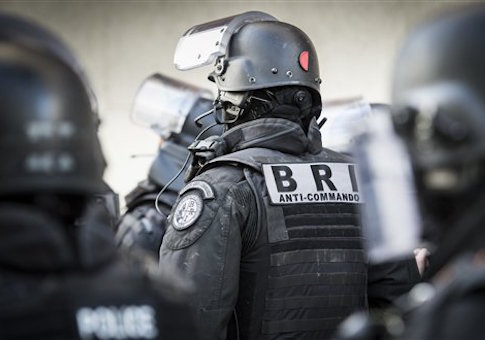Target: Paris. More than 130 die in a terrorist attack on a Friday night in November. No one sees it coming. Global panic ensues.
Suddenly the nation debates the future of the Syrian refugee program. Terrorism jumps to the front of voters’ minds. National security becomes the defining issue of the 2016 election. No one sees that coming, either.
Around two weeks after the Paris attack, Turkey shoots down a Russian fighter over Syria. Vladimir Putin calls it a "stab in the back" and sends more forces to the region. Barack Obama pleads for calm. Trending on Twitter: World War III.
The last month has been an object lesson in the unpredictability of politics. We began November with news of an improving economy, with a rise in President Obama’s approval ratings. We end it with America and the world on high alert, with Obama on defense.
We began November with Democrats confident that demographics and low unemployment guarantee Hillary Clinton’s election. We end it with fears of terrorism and infiltration, with Democrats no longer as sure.
This reversal should give pause to any commentator. If the situation is so fluid now, how can we say with any confidence what things will look like a year on? Elections come into focus late. Why? Because most voters don’t pay attention to politics until the balloting is imminent.
Some examples. George W. Bush led Al Gore for much of 2000. But the race closed in the last week after reports of Bush’s past DUI. What looked like a sure Bush victory surprisingly turned into the Florida recount.
When September 2008 began, John McCain was in a close race with Barack Obama. Sarah Palin infused the Republican ticket with youth and populist energy, Russia’s invasion of Georgia had played into McCain’s national security expertise, and high gas prices occasioned calls for "Drill, Baby Drill!" The next month Lehman Brothers collapsed, money market funds plunged into crisis, and the global financial system froze. McCain was doomed.
Jeb Bush entered the Republican primary the presumptive frontrunner. He had money, establishment credentials, a solid record. The aura of inevitability was meant to prevent Marco Rubio from entering the race. Bush's big challenger, at least in Iowa, was Scott Walker. No one seriously thought Donald Trump would run, and when he did, the assumption was that he would flame out. As I write Trump is leading the polls, Walker has been out of the race for months, and Rubio leads Bush.
It’s not just that our ability to predict the future is extremely limited. It’s that our very idea of the future is biased toward what’s happening now. In 2007, Francis Fukuyama edited a book called Blindside. "Anticipating and dealing with what were thought to have been very low-probability events have clearly become central challenges for policymakers in public and private sectors alike all over the world," he wrote. Talk about an understatement.
What struck me as I re-read the book this week was how the low-probability events that contributors worried about were all related to what was being discussed in the news at the time: hurricanes, Avian flu, China’s eclipse of America, terrorists obtaining WMD. But there is no index entry for subprime mortgages, no reference to Hillary Clinton or Barack Obama, a passing historical reference to Syria. Of course ISIS is absent as well. It hadn’t been invented yet.
In a way, our current predicament is more tumultuous than in the recent past. Since 2011, the Syrian civil war has acted, in General David Petraeus’ phrase, as a "geopolitical Chernobyl." The zone of contamination has expanded steadily into Iraq, into Lebanon, onto the borders of Jordan, Israel, Turkey, into the airspace above Sinai, the neighborhoods of Beirut, the music halls of Paris. It will continue to expand as long as the Islamic States holds ground and inspires followers, as long as the war remains the epicenter of Sunni-Shia bloodletting.
The radiation has reached Europe. Soon it will cross the Atlantic. What happens when it does is anyone’s guess. "We can predict with certainty that we will be surprised; we can and do anticipate an array of catastrophic events," wrote Fukuyama. "Unfortunately, the authors of this volume suggest that we can also predict with certainty that when they come, we will be inadequately prepared."
First the unthinkable becomes conceivable. Then the conceivable becomes plausible. Then the plausible becomes acceptable. And the next thing you know, we’ve got President Trump.
